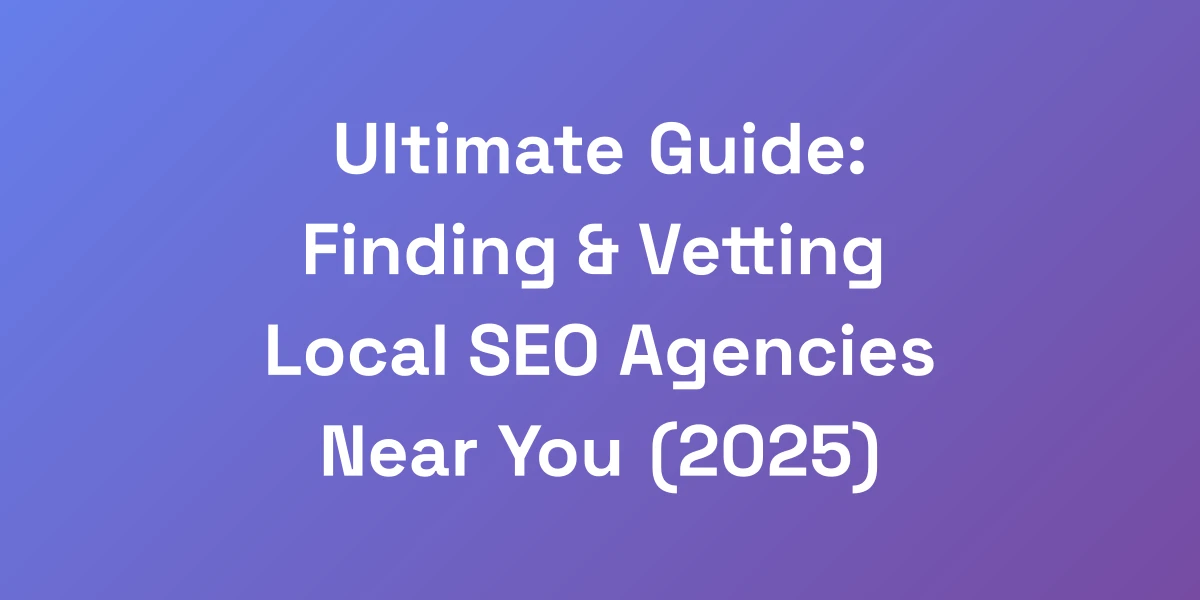
10 Hidden Secrets Top Organic SEO Agencies Don’t Want You to Know
Mar 18, 2025 | By zishansami102@gmail.com
Introduction
Ever felt like you’re throwing money into a black hole when working with an organic SEO agency? You’re not alone.
We’ve all heard the buzzwords—holistic optimization, semantic relevance, and other jargon that sounds impressive but feels empty. Here’s the kicker: most of these agencies are recycling the same old strategies, over and over again.
Imagine investing thousands into a campaign that promises the stars but delivers pebbles. Frustrating, right? We’ve been in the trenches, building multiple 8-figure businesses, and we’ve seen the deceptive tactics first-hand. It’s time to peel back the curtain and reveal the secrets these top agencies are keeping under wraps.
Ready to uncover the truths that could save your business from mediocre results and skyrocket your organic growth? Let’s dive into the hidden strategies that separate the true SEO maestros from the pretenders.
The Truth About Organic SEO Agencies Most Business Owners Miss
Let us hit you with some brutal truth about organic SEO agencies that nobody’s talking about. After building multiple 8-figure businesses, we’ve seen firsthand how most agencies are playing a game of smoke and mirrors. They’ll throw around fancy terms like “holistic optimization” and “semantic relevance,” but here’s what they won’t tell you: 95% of their strategies are basic templates they use for every client. The real difference between a 6-figure and 7-figure SEO campaign isn’t in the tools or technical mumbo-jumbo – it’s in the execution and accountability.
Why Traditional Agency Models Are Bleeding Your Budget Dry
Traditional SEO agencies often operate on a one-size-fits-all model. They recycle strategies because it’s easier and cheaper than crafting bespoke solutions for each client. Think about it: would you buy a suit that’s tailored to everyone versus one that’s custom-made for you? The latter makes a world of difference.
These agencies typically charge between $1,000 and $1,500 monthly as part of their SEO retainers, as reported by GoodFirms.
But here’s the catch—most of that money goes towards generic services that offer minimal differentiation. How much of your budget is truly translating into tangible growth, and how much is just padding their pockets?
- High costs without proportional results.
- Limited customization options.
- Lack of personalized strategies tailored to your unique business needs.
It’s no wonder that so many businesses feel their budgets are being drained without seeing significant returns.
The Real Cost vs. Value Equation in SEO Services
When evaluating an organic SEO agency, it’s crucial to look beyond the price tag and assess the true value they provide. For instance, according to Keystar Agency, agencies average $3,209/month for SEO services, while freelancers charge around $1,348.63/month.
But what are you getting for that money? High-priced agencies often promise more but deliver the same basic strategies as their lower-priced counterparts.
- Cost: High retainers often come with the promise of a full suite of services.
- Value: Without innovative strategies and accountability, the value remains questionable.
The disparity between cost and actual value can lead to businesses overpaying for underwhelming results. It’s time to rethink how you assess the value of SEO services.
Red Flags That Scream “Run Away Fast”
Not sure if your SEO agency is a good fit? Keep an eye out for these red flags:
- Guaranteed Rankings: If they promise top rankings within a specific timeframe, it’s a major red flag. SEO is complex and unpredictable.
- Lack of Transparency: Agencies that are vague about their strategies or refuse to share detailed reports are hiding something.
- One-Size-Fits-All Approach: Agencies that use the same tactics for every client without customization.
- No Case Studies or Proof of Success: If they can’t provide solid examples of past successes, question their credibility.
Spotting these red flags early can save you from wasting time and money on ineffective SEO strategies.
What Actually Moves the Needle in Organic Search
So, what really makes a difference in organic search? It’s not the fancy tools or the latest buzzwords. It’s about execution and accountability.
High-performing agencies focus on:
- Customized Strategies: Tailored approaches that align with your specific business goals.
- Continuous Optimization: Regularly tweaking and improving strategies based on performance data.
- Transparent Reporting: Clear, detailed reports that show exactly what’s working and what’s not.
These elements ensure that your SEO efforts are not just a hit-or-miss but a consistent path towards growth.
The Metrics That Actually Matter (Not What They Show You)
Many agencies focus on vanity metrics like keyword rankings and page views, but the real indicators of success are deeper.
Key metrics to pay attention to include:
- Organic Traffic Quality: Are visitors engaging with your site or just bouncing off?
- Conversion Rates: How many of those visitors are turning into leads or sales?
- Revenue Impact: Ultimately, how much is your SEO investment contributing to your bottom line? Learn more about automated SEO reporting.
Focusing on these metrics provides a clearer picture of your SEO performance and its impact on your business.
The Million-Dollar Framework for Vetting SEO Agencies
Listen up, because this is the exact framework we use when evaluating SEO partners for our portfolio companies. Most business owners get caught up in vanity metrics and pretty presentations, but here’s the truth: There are only three core elements that determine if an agency will deliver ROI or waste your money. We’ve spent millions testing different agencies, and this framework has saved us from countless expensive mistakes. It’s not about their case studies or their client list – it’s about their ability to execute on these specific parameters, including partnering with the best SEO outsourcing companies in 2025.
The Accountability Matrix: Beyond Standard KPIs
An effective agency doesn’t just set KPIs; they hold themselves accountable to achieving them.
- Setting Realistic Goals: Agencies should establish achievable targets based on your business objectives.
- Regular Check-Ins: Continuous communication ensures strategies remain aligned with your goals.
- Transparent Reporting: Detailed reports that highlight successes and identify areas for improvement.
By focusing on accountability, you ensure that the agency is committed to your success every step of the way.
Proof of Revenue Impact (Not Just Rankings)
True success in SEO is measured by its impact on your revenue, not just higher search rankings.
- Revenue Tracking: Agencies should use tools to track how SEO efforts translate into sales.
- Conversion Optimization: Strategies should focus on turning traffic into paying customers.
- ROI Analysis: Regular assessments to ensure your investment is generating returns.
By prioritizing revenue impact, agencies demonstrate their true value to your business.
The Technical Competency Test
Technical SEO is the backbone of any successful organic strategy. Here’s how to evaluate an agency’s technical prowess:
- Site Audits: Comprehensive audits that identify and address technical issues.
- Advanced Tools: Proficiency with tools like Ahrefs, Screaming Frog, and Google Search Console.
- Up-to-Date Knowledge: Staying current with the latest SEO trends and algorithm updates.
Agencies that excel technically ensure your site is optimized for both users and search engines.
Content Strategy Evaluation Framework
Content is king, but not all content is created equal. Evaluate an agency’s content strategy with these points:
- Quality Over Quantity: Focus on creating high-value, engaging content.
- Content Diversity: Incorporate various formats like blogs, videos, infographics, and more.
- Keyword Integration: Seamlessly incorporate targeted keywords without stuffing.
A robust content strategy drives organic growth by addressing user needs and autoblogging for content readability and SEO.
Team Structure and Execution Capacity
The structure of an agency’s team can significantly impact their ability to deliver results.
- Specialized Roles: Dedicated experts for content, technical SEO, and link building.
- Collaborative Workflow: Teams that communicate effectively to implement strategies.
- Scalability: The ability to scale efforts as your business grows.
A well-organized team ensures that all aspects of your SEO strategy are handled efficiently and effectively.
Learn more about SEO team structure for success.
Advanced SEO Strategies Only Elite Agencies Deploy
After analyzing hundreds of SEO campaigns that generated over $100M in revenue, we’ve noticed a clear pattern that separates the top 1% of agencies from the rest. These aren’t your typical “optimize meta tags” strategies. We’re talking about advanced content architectures and psychological triggers that most agencies don’t even know exist. The best part? Once you understand these strategies, you’ll never fall for mediocre agency pitches again.
Entity-Based SEO Architecture
Entity-based SEO goes beyond keywords by focusing on the relationships and contexts that define your content. This approach aligns with Google’s understanding of content through the Knowledge Graph.
- Contextual Relevance: Building content around entities that are relevant to your industry.
- Interlinking: Creating a network of related content that supports your main topics.
- Schema Markup: Implementing structured data to help search engines better understand your content.
By leveraging entity-based architecture, elite agencies ensure your content is not only discoverable but also authoritative.
User Intent Mapping at Scale
Understanding and mapping user intent is crucial for creating content that truly resonates with your audience.
- Intent Classification: Categorizing search queries based on user intent—informational, navigational, transactional.
- Content Alignment: Ensuring each piece of content meets the specific intent of its target audience.
- Data-Driven Adjustments: Using analytics to refine and optimize content strategies continually.
By aligning content with user intent, you increase engagement and conversion rates, ensuring your efforts are always on target.
Content Velocity Optimization
Content velocity refers to the frequency and consistency with which you publish new content. Elite agencies optimize content velocity to maintain a steady flow of fresh content that keeps your site relevant.
- Consistent Publishing Schedule: Regularly updating your site ensures continuous engagement.
- Quality Control: Maintaining high standards even with increased content production.
- Scalable Processes: Implementing systems that allow for efficient content creation and publication.
Balancing quantity with quality helps sustain long-term SEO growth and keeps your audience engaged.
Technical Stack Integration
Integrating a robust technical stack is essential for executing advanced SEO strategies effectively.
- Automation Tools: Leveraging tools to automate repetitive tasks, freeing up time for strategic planning.
- Data Integration: Ensuring all tools work seamlessly together to provide comprehensive insights.
- Custom Solutions: Developing bespoke tools tailored to your specific SEO needs.
With the right technical stack, agencies can streamline processes and maximize efficiency, leading to better results.
Cross-Channel Amplification Tactics
SEO doesn’t exist in a vacuum. Elite agencies use cross-channel amplification to boost your organic efforts through various marketing channels.
- Social Media Integration: Sharing content across platforms to increase visibility and backlinks.
- Email Marketing: Promoting content to your subscriber base for additional exposure.
- PPC Synergy: Using paid campaigns to complement and enhance organic strategies.
This multi-faceted approach ensures that your SEO efforts are amplified across all relevant channels, driving more traffic and engagement.
The ROI Acceleration Framework for Organic Search
Here’s where most businesses get it wrong with their SEO agencies. They focus on rankings when they should be obsessing over revenue acceleration. We’re going to show you the exact framework that turned a $20K/month SEO investment into $1.2M in additional monthly revenue. It’s not about waiting 6-12 months for results – it’s about stacking immediate wins while building long-term assets.
The 30-60-90 Day Revenue Map
A strategic roadmap focusing on incremental revenue growth over the first 90 days sets the stage for long-term success.
- First 30 Days: Comprehensive site audit and immediate technical fixes to eliminate quick wins.
- Next 30 Days: Content optimization and initial link-building to start driving traffic.
- Final 30 Days: Conversion rate optimization and advanced strategies to accelerate revenue growth.
This phased approach ensures that every step taken is aligned with driving revenue, not just improving rankings.
Conversion Rate Optimization Integration
Driving traffic is only half the battle. Turning that traffic into conversions is where the real value lies.
- Landing Page Optimization: Creating high-converting landing pages tailored to user intent.
- A/B Testing: Continuously testing different elements to find what works best.
- User Experience Enhancements: Improving site navigation and usability to facilitate conversions.
Integrating CRO with your SEO strategy ensures that increased traffic translates into tangible business results.
Traffic Quality Scoring System
Not all traffic is created equal. A quality scoring system helps you focus on the visitors who are most likely to convert.
- Behavior Analysis: Tracking metrics like time on site, pages per visit, and bounce rate.
- Intent-Based Targeting: Identifying and prioritizing traffic from high-intent search queries.
- Segmentation: Dividing traffic into segments to tailor strategies for each group.
By prioritizing high-quality traffic, you maximize the efficiency of your SEO efforts and boost conversion rates.
ROI Attribution Model
Understanding how each SEO activity contributes to your overall ROI is crucial for optimizing your strategies.
- Multi-Touch Attribution: Assigning value to multiple touchpoints in the customer journey.
- Revenue Tracking: Linking specific SEO activities to revenue outcomes.
- Performance Dashboards: Creating dashboards that visualize ROI across different metrics.
An effective attribution model provides clarity on which strategies are delivering the highest returns, enabling data-driven decision-making.
Scaling Success Metrics
Once you have effective strategies in place, scaling them ensures sustained growth.
- Replicating Success: Identifying what works and scaling those strategies across more areas.
- Resource Allocation: Investing more resources into high-performing tactics.
- Continuous Improvement: Regularly optimizing and refining strategies to maintain momentum.
Scaling successful metrics ensures that your organic growth continues to accelerate without hitting a plateau.
Future-Proofing Your SEO Agency Partnership
Let’s talk about long-term sustainability in SEO. The agency you choose today needs to be equipped for tomorrow’s challenges. After working with over 100 businesses, we’ve developed a bulletproof system for ensuring your SEO partnership continues to deliver results year after year. It’s not just about avoiding algorithm updates – it’s about building an unstoppable organic traffic machine.
AI Integration and Automation
Artificial Intelligence is revolutionizing SEO. Agencies that leverage SEO automation can provide more accurate insights and automate mundane tasks, freeing up time for strategic initiatives.
- AI-Powered Keyword Research: Utilizing AI to uncover hidden keyword opportunities.
- Automated Reporting: Generating detailed reports without manual intervention.
- Predictive Analytics: Forecasting trends and adjusting strategies proactively.
Integrating AI ensures your SEO strategy remains cutting-edge and efficient.
Core Web Vitals Evolution
Google’s Core Web Vitals are critical for user experience and SEO performance. Top agencies prioritize these metrics to ensure your site meets the latest standards.
- Loading Performance: Optimizing page load times to enhance user experience.
- Interactivity: Ensuring your site responds quickly to user interactions.
- Visual Stability: Preventing layout shifts that disrupt the user experience.
Focusing on Core Web Vitals helps improve both your search rankings and user satisfaction.
Mobile-First Strategy Development
With mobile devices accounting for over 60% of internet traffic, a mobile-first approach is non-negotiable.
- Responsive Design: Ensuring your site looks and functions flawlessly on all devices.
- Mobile Optimization: Streamlining content and navigation for mobile users.
- Accelerated Mobile Pages (AMP): Implementing AMP for faster load times on mobile devices.
A mobile-first strategy ensures that you’re reaching and engaging the majority of your audience effectively.
Voice Search Optimization
The rise of voice assistants like Alexa and Google Assistant has made voice search optimization essential.
- Natural Language Processing: Crafting content that matches how people speak.
- Long-Tail Keywords: Focusing on conversational, long-tail keywords that align with voice queries.
- Featured Snippets: Optimizing for position zero to capture voice search results.
Optimizing for voice search ensures that your content is easily accessible through modern search methods.
Local SEO Integration
Local SEO is a powerful tool, especially for businesses targeting specific geographic areas.
- Google My Business Optimization: Ensuring your listing is complete and accurate.
- Local Citations: Building consistent and accurate local listings across the web.
- Customer Reviews: Encouraging and managing reviews to enhance local credibility.
Integrating local SEO strategies helps you capture and convert local leads effectively.
Conclusion
We’ve peeled back the layers on the hidden secrets that top organic SEO agencies use to drive success. From exposing the inefficiencies of traditional models to unveiling advanced strategies that deliver real results, you’re now equipped with the knowledge to make informed decisions.
Remember, the difference between a mediocre SEO campaign and a million-dollar strategy lies in execution and accountability. By leveraging the frameworks and strategies we’ve discussed, you can ensure your SEO efforts are not just effective but also sustainable in the long run.
Ready to take your organic search to the next level? Start by reevaluating your current SEO partnerships and implement the secrets we’ve shared to accelerate your growth.
What strategies have you found effective in your SEO journey? Share your experiences and let’s continue the conversation!
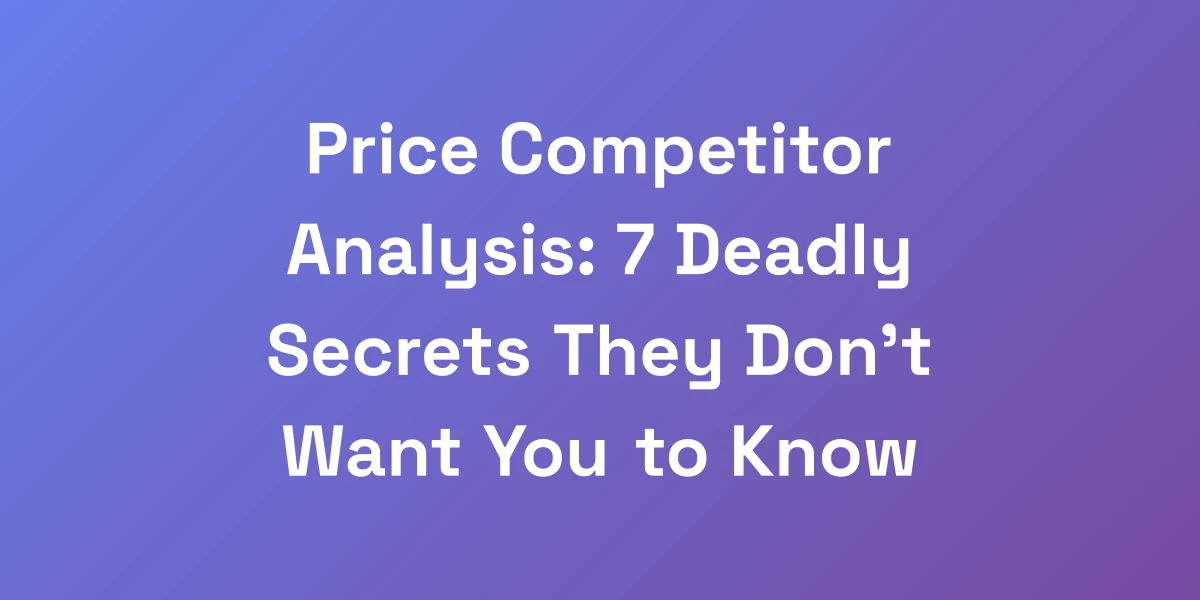
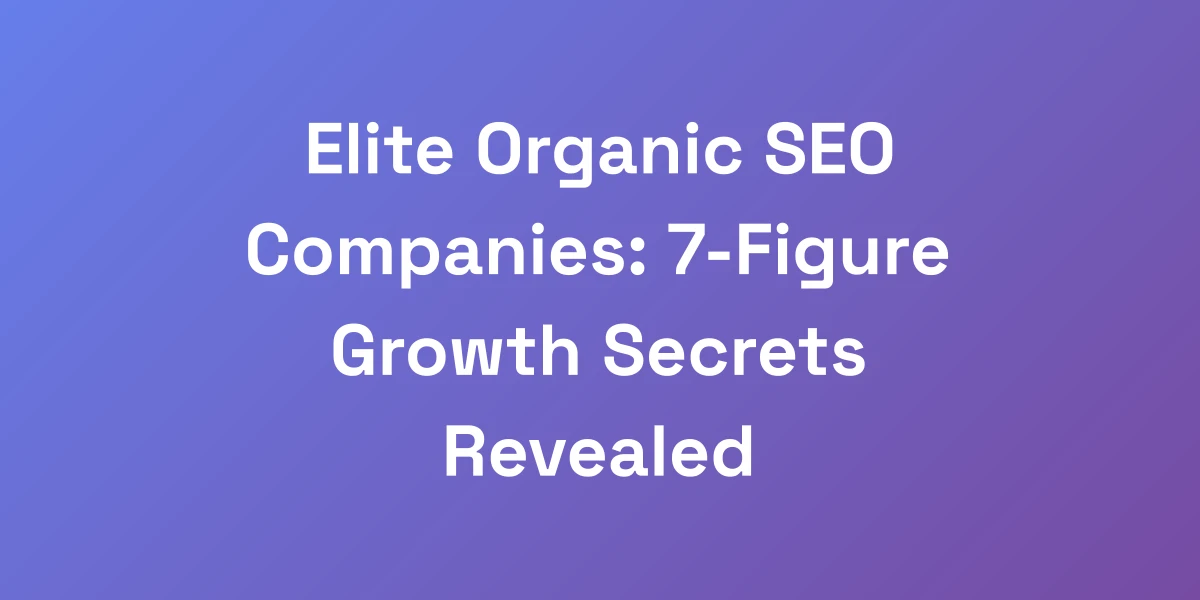

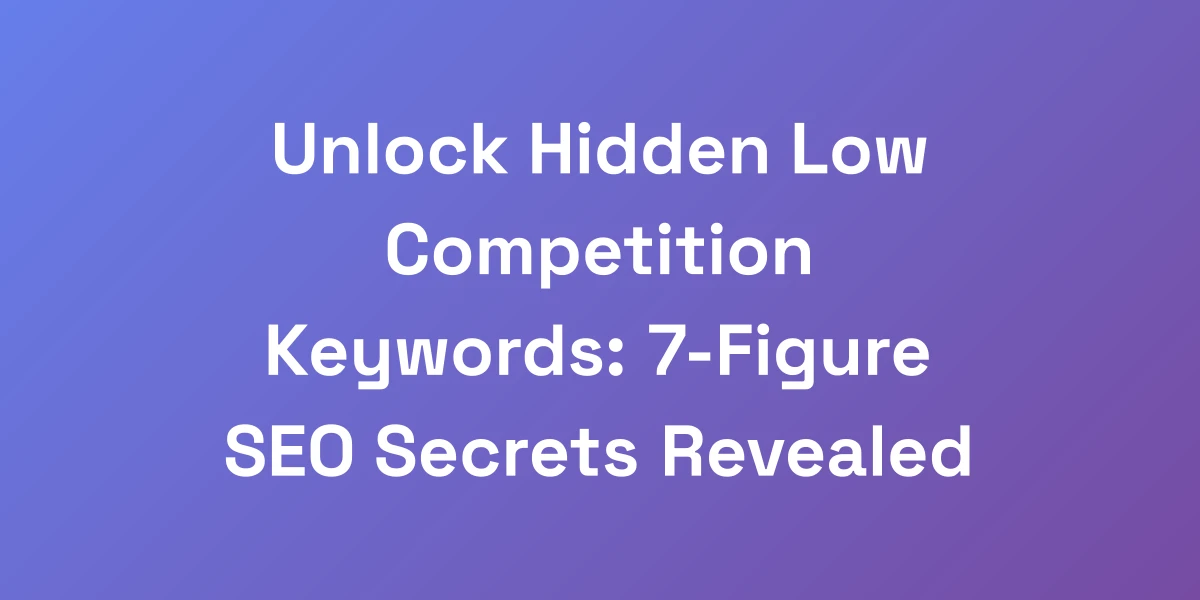
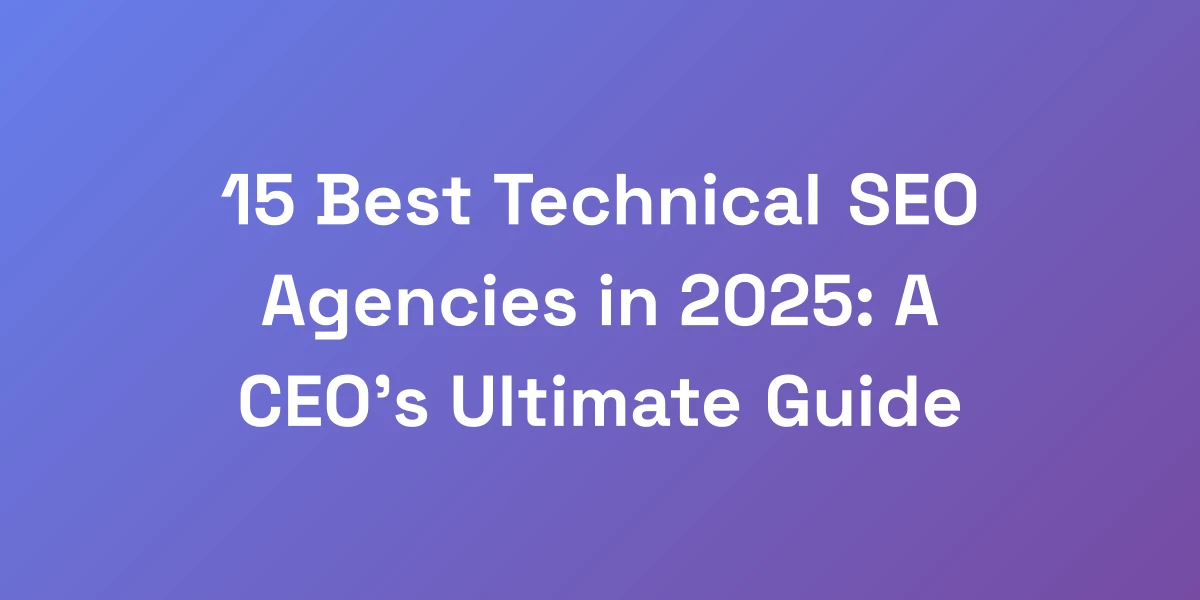

![Local SEO Cost Breakdown 2025: What You’ll Actually Pay [+Calculator]](https://autoseo.eazyseo.co/wp-content/uploads/2025/04/Local-SEO-Cost-Breakdown-2025-What-Youll-Actuall.webp)
